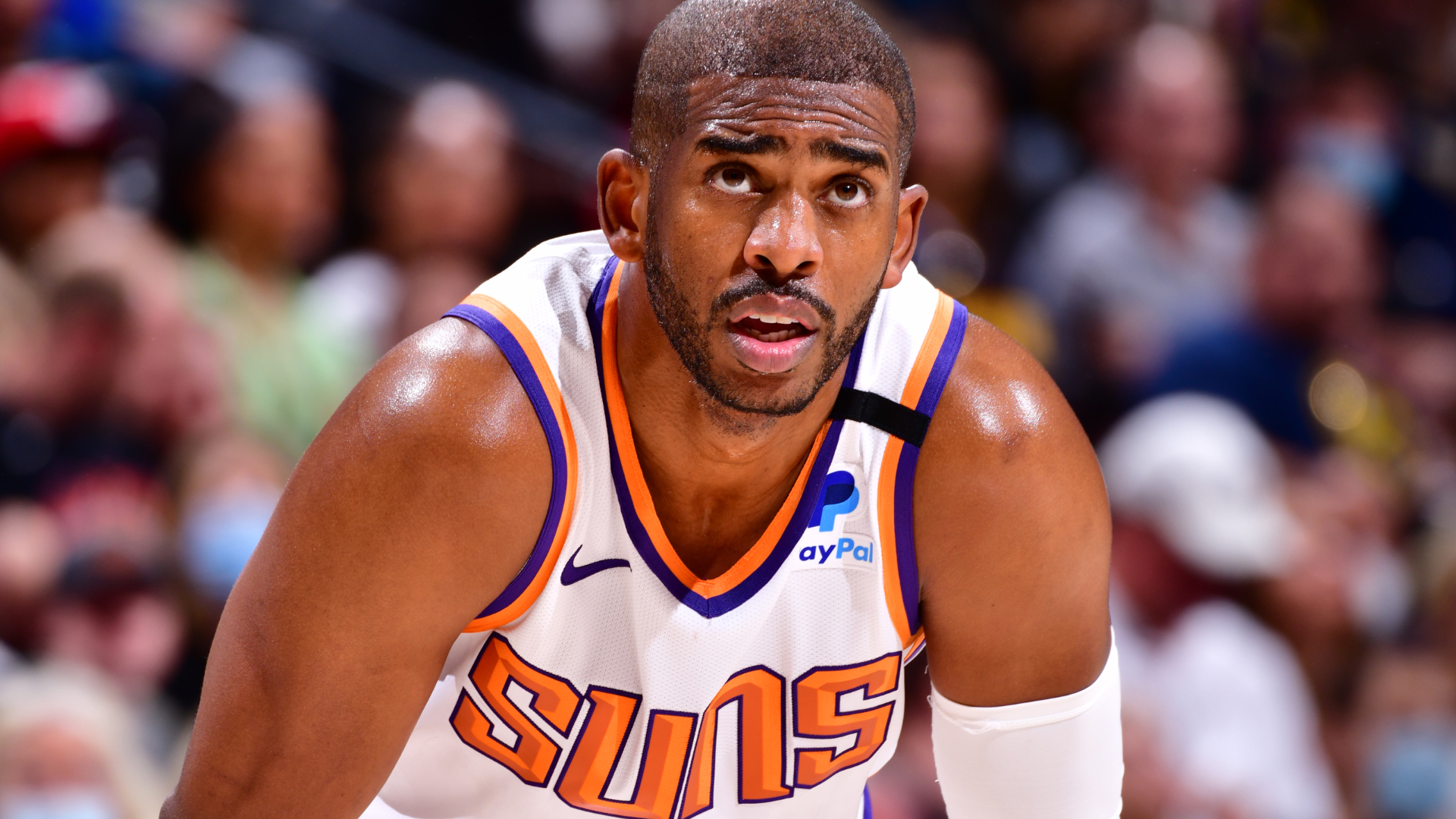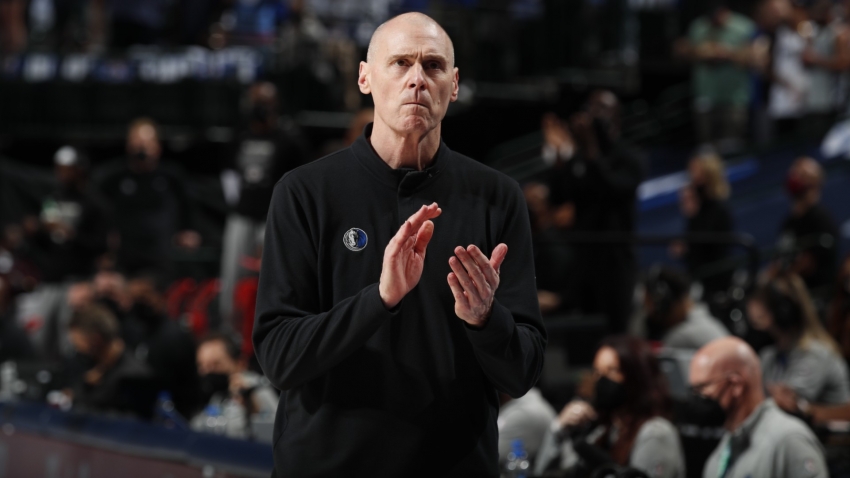
Chris Paul crumpled to the floor of Phoenix Suns Arena, grimacing and twisting with pain while he grasped at his right shoulder.
For all his regular-season accolades – 11 All-Star Games, nine All-NBA teams, four assists titles and six steals titles – deep playoff runs have been hard to come by for Paul.
Whether due to fate or disappointing failure, the future Hall of Fame point guard has only played in one Conference Finals series. After suffering a hamstring injury in 2018, Paul watched from the sideline as his Houston Rockets lost Games 6 and 7 to the Golden State Warriors, extinguishing his best chance to date to win a title.
Three years later, as Paul left the floor with a right shoulder injury during Game 1 of the Suns' first-round series against the Los Angeles Lakers, it must have felt as if the fates were conspiring against him again. After leading Phoenix to the NBA's second-best record in 2020-21, Paul got to face LeBron James and the defending champions as a reward. Then an injury less than 15 minutes into the postseason?
What a hopeless feeling that must have been.
Paul didn't miss a game in the series but looked like a shell of himself through Game 3, averaging 6.7 points on 38.1 per cent shooting as the Suns trailed 2-1 in the series. The tide turned in Game 4, however, with Anthony Davis succumbing to injury and with Paul's shoulder beginning to steadily improve.
After ousting the Lakers in six games, Paul was nearly flawless in a sweep of the Denver Nuggets and MVP Nikola Jokic. He averaged 25.5 points and 10.3 assists over four games and rose to the occasion in the clutch, scoring 17.0 points per game in the second half on absurd 78.8 per cent shooting. In fourth quarters that series, Paul was 16 for 19 from the field (84.2 per cent), including a perfect mark on his four three-point attempts.
Paul totalled 41 assists, the most since 1984-85 in a playoff series while committing five or fewer turnovers. For the third time in his postseason career, he had 15 assists and no turnovers in Game 2, a feat that has only been done seven times in a playoff game since 1984-85.
At 36 years old, Paul painted one of the most memorable masterpieces of his career.
Then came another devastating blow, when Paul was sidelined in accordance with the NBA's COVID-19 health and safety protocols on Wednesday morning, keeping him in quarantine indefinitely. It has not been specified whether Paul has tested positive for the coronavirus, or exactly why he has entered the protocols.
Going forward, the Suns' road only gets tougher, facing either the top-seeded Utah Jazz or Paul's former team – the Los Angeles Clippers – in the Western Conference Finals, and Phoenix could be forced to start the series without their star point guard.
Despite the challenge ahead, it is tempting to consider what a first career NBA Finals appearance – or first career title – would do for the legacy of one of the most underrated players of his era.
Paul's brilliance can sometimes go unnoticed, especially in a league full of talented scorers who appear ready to drop 50 in any given game. His career high is 43 points, and the last time he hit 40 was in 2016.
But what's set Paul apart since the day he entered the league are his abilities to command an offense and distribute to team-mates. He is one of six players with over 10,000 career assists and, all things being equal, will move into third on the all-time helpers list next season, trailing only John Stockton and Jason Kidd.
Among the five players with the most assists in NBA history, Paul's 18.3 points per game is the highest mark, out-pacing Steve Nash's 14.3 by a healthy margin.
Paul is also fifth all-time with 2,332 career steals and could move up a spot or two on that list in two years' time.
But Paul's true impact defies traditional box score statistics. This postseason, the Suns have a scoring differential of plus 13.0 points per 100 possessions with Paul on the court, and Phoenix are shooting nearly 50 per cent from the floor with their conductor in the game.
Moreover, Paul's teams simply win.
His teams have a record of 698-392 when he plays, or an average of 53-29 over an 82-game season. Paul has played for five teams in his career, and each have improved their record in Paul's first year over the previous season. On average, a team adding Paul to the roster increase their win percentage by .168, the equivalent of 14 added wins over an 82-game season.
If Paul never played another game, he would still be a guaranteed Hall of Famer. And after this latest disruption, perhaps the 2021 playoffs will be yet another chapter in a book of postseasons gone wrong for an otherwise legendary player.
But almost every team remaining in this year’s playoffs is dealing with attrition, including both the Suns' potential opponents in the next round. Phoenix are rated by bookmakers as the second favourites for the championship, trailing only the Brooklyn Nets.
Paul's legacy should be able to stand alone, with or without a title. But adding a championship ring would go a long way towards forcing his detractors to finally acknowledge his consistent brilliance.
















































